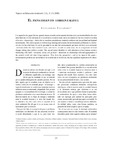
Please use this identifier to cite or link to this item:
http://ricaxcan.uaz.edu.mx/jspui/handle/20.500.11845/235Full metadata record
| DC Field | Value | Language |
|---|---|---|
| dc.contributor.other | 0000-0002-7441-3233 | |
| dc.coverage.spatial | Global | es_ES |
| dc.creator | Foladori, Guillermo | |
| dc.date.accessioned | 2017-05-16T17:40:16Z | |
| dc.date.available | 2017-05-16T17:40:16Z | |
| dc.date.issued | 2000-01 | |
| dc.identifier | info:eu-repo/semantics/publishedVersion | |
| dc.identifier.issn | 1666-485X | es_ES |
| dc.identifier.issn | 1668-723X | es_ES |
| dc.identifier.uri | http://hdl.handle.net/20.500.11845/235 | |
| dc.description | It is argued in this paper that two general stances towards environmental education (EE) can be identified in the available literature. On the one hand, EE is conceived as an end in itself, and as an endeavour that has a wealth of content of its own —the ecology— that is able to transform unsatisfactory material conditions into less polluted and depleted environments. This stance equates EE with ecology learning and assumes the environmental problematic is a technical one. On the other hand, EE can be grounded in the idea that environmental problems rise from socio-economic structures rather than from technical issues; and that EE, in order to make sense, has to complement structural changes taking place within a society. This second stance identifies EE with education on how human society’s relationship with itself —economic, social, and political— determines its relationship with and appropriation of the material world and other living organisms. Thus, from this perspective —and as we argue in this paper— environmental problems are not technical but societal and, as we discuss, this has significant implications for education. | es_ES |
| dc.description.abstract | Durante las últimas tres décadas del siglo XX el concepto de educación ambiental (EA) ha te nido diferentes significados; sin embargo, más allá de que ha cambiado, lo que se entiende por EA pueden distinguirse dos grandes posturas. Por un lado, aquella que la considera como un objetivo en sí misma y has ta con un contenido propio —la ecología—,capaz de transformar las condiciones materiales hacia un ambiente menos contaminado y depredado. Esta postura equipara EA con enseñanza de la ecología, y asume los problemas ambientales como esencialmente técnicos. El desconocimiento de los flujos de energía y materiales entre la sociedad humana y el resto del mundo físico- material y los otros seres vivos es causante de la crisis ambiental. De allí que la EA se asuma como el instrumento para su solución. | es_ES |
| dc.language.iso | spa | es_ES |
| dc.publisher | Academia Nacional de Educación Ambientalllll | es_ES |
| dc.relation | https://issuu.com/agoraambiental/docs/el_pensamiento_ambientalista | es_ES |
| dc.relation.uri | generalPublic | es_ES |
| dc.rights | Attribution-NonCommercial-ShareAlike 3.0 United States | * |
| dc.rights.uri | http://creativecommons.org/licenses/by-nc-sa/3.0/us/ | * |
| dc.source | Tópicos en Educación Ambiental, vol.2, No.1, pp. 21-38. | es_ES |
| dc.subject.classification | CIENCIAS AGROPECUARIAS Y BIOTECNOLOGIA [6] | es_ES |
| dc.subject.other | info:eu-repo/classification/Crisis ambiental | |
| dc.subject.other | info:eu-repo/classification/Ecología | |
| dc.subject.other | info:eu-repo/classification/Educación ambiental | |
| dc.title | El pensamiento ambientalista | es_ES |
| dc.type | info:eu-repo/semantics/article | es_ES |
| Appears in Collections: | *Documentos Académicos*-- UA Estudios del Desarrollo | |
Files in This Item:
| File | Description | Size | Format | |
|---|---|---|---|---|
| Foladori, Guillermo. El Pensamiento Ambientalista.pdf | Versión publicada | 149,61 kB | Adobe PDF |  View/Open |
This item is licensed under a Creative Commons License
